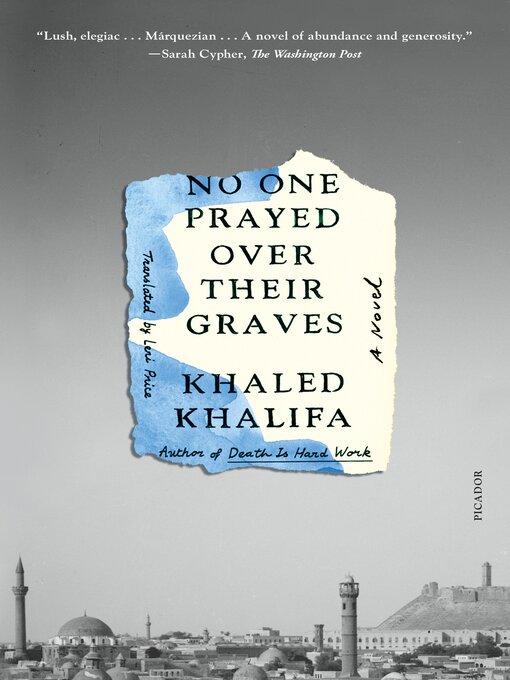Longlisted for the 2023 National Book Award for Translated Fiction | One of The Washington Post's 50 best works of fiction of 2023
"Gorgeous . . . Lush, elegiac [and] Márquezian . . . A novel of abundance and generosity." —Sarah Cypher, The Washington Post
"Richly embroidered . . . [Khalifa's] galloping narration restores life and soul to a city that has become a byword for devastation." —The Economist
From the National Book Award finalist Khaled Khalifa, the story of two friends whose lives are altered by a flood that devastates their Syrian village.
On a December morning in 1907, two close friends, Hanna and Zakariya, return to their village near Aleppo after a night of drunken carousing in the city, only to discover that there has been a massive flood. Their neighbors, families, children—nearly all of them are dead. Their homes, shops, and places of worship are leveled. Their lives will never be the same.
Hanna was once a wealthy libertine, a landowner who built a famed citadel devoted to the pursuit of pleasure and excess. But with the loss of his home, wife, and community, he transforms, becoming an ascetic mystic obsessed with death and the meaning of life. In No One Prayed Over Their Graves, we follow Hanna's life before and after the flood, tracing friendships, loves and lusts, family and business, until he is just one thread in the rich tapestry of Aleppo.
Khaled Khalifa weaves a sweeping tale of life and death in the hubbub of Aleppine society at the turn of the twentieth century. No One Prayed Over Their Graves is a portrait of a people on the verge of great change—from provincial villages to the burgeoning modernity of the city, where Christians, Muslims, and Jews live and work together, united in their love for Aleppo and their dreams for the future.
- Available now
- New eBook additions
- New kids additions
- New teen additions
- Most popular
- Try something different
- See all
- Available now
- New audiobook additions
- New kids audiobook additions
- New teen additions
- Try something different
- See all


